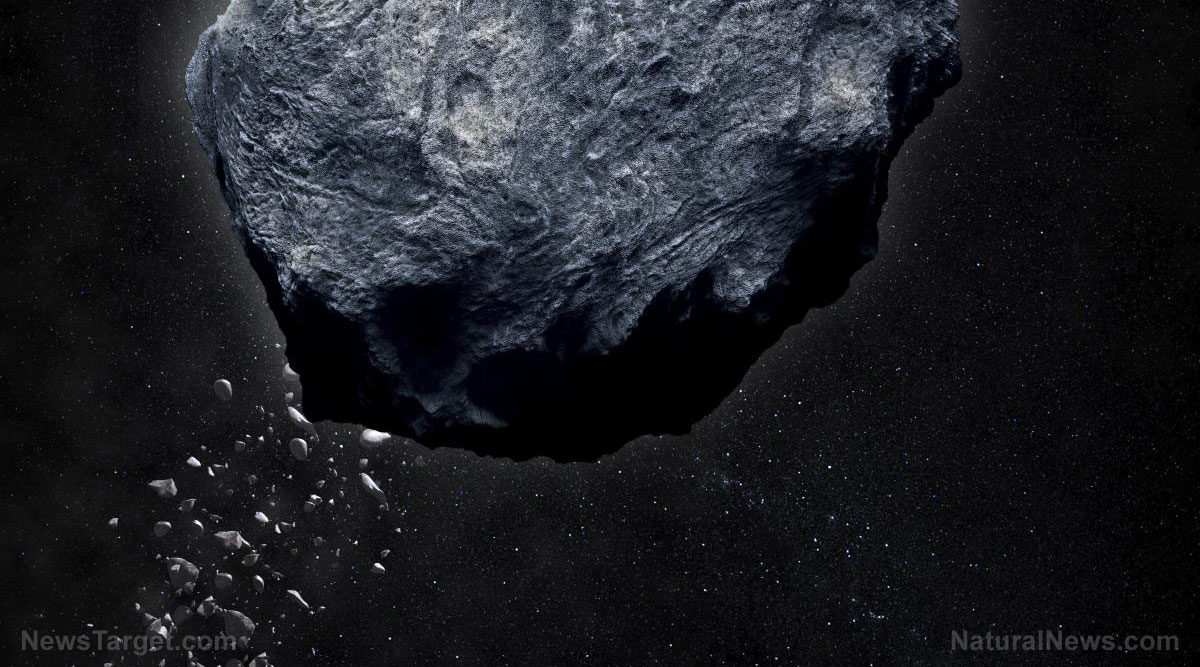The great outer space LAND GRAB of the near future: Conflicts over space rock mining rights
08/26/2017 / By Frances Bloomfield

Space has become a veritable goldmine of natural resources for many companies, yet can anyone lay claim to them? That’s the question legal experts claim will become relevant in the future as firm turn to the stars for precious metals and minerals, and it’s one that also needs to be answered as soon as possible to avoid hostility between competing firms and countries.
Barry Kellman, law professor of space governance at DePaul University in Chicago, explained: “There is a huge debate on whether companies can simply travel to space and extract its resources. There is no way to answer the question until someone does it.”
According to one international treaty, this need not even be an issue. The Outer Space Treaty of 1967, formally known as the Treaty on Principles Governing the Activities of States in the Exploration and Use of Outer Space, Including the Moon and Other Celestial Bodies, has served as the main standard for sharing space. As per the 1967 treaty, no single country can claim “national appropriation” of celestial bodies “by occupation or by other means”. (Related: MINING just one large asteroid could COLLAPSE the world economy due to surge of new supply for valuable metals.)
Despite this, some countries have already begun passing laws that allow property rights in space, most notably the United States of America and Luxembourg. The laws passed by these countries have ensured that private operators have rights over the resources they obtained from space, such as the oxygen and hydrogen extracted by the firm Planetary Resources.
“If you obtain a resource and bring it with you, it becomes your property. You can sell, keep or deliver (space resources) peacefully,” Planetary Resources Chief Executive Chris Lewicki told the DailyMail.co.uk. Lewicki stated that the firm has no intention of bringing those resources back to Earth, and instead plans on creating a “gas station” to provide fuel to space ships.
The National Aeronautics and Space Administration (NASA) has deigned not to take a side on the issue. “If companies request assistance or want partnerships related to mining on Mars, we help to the best of our ability,” said a spokesman for the agency.
Lewicki added: “For the moment, the company exists on earth, where all of the laws and regulations apply.”
In addition to the 1967 treaty, legal experts have cited the United Nations’ Law of the Sea Convention as an earthly regulation that could help build the legal framework for space resources. Under this, countries have exclusive rights to the natural resources 200 mi or 322 km of their coastline, yet plans and ships from other nations can pass through the waters as they please. The Law of Sea Convention could be used as a template to give companies exclusive economic rights to certain area but not ownership over an entire planet or asteroid.
As attorney Andrew Brehm elaborated: “It’s advantageous to work out a system where people can acquire property rights enforceable through a legal process. That being said, outer space is viewed in society as something similar to the ocean, where there is a collective interest. A first come, first serve system does not necessarily work well when only certain countries or private entities can (currently) reach outer space.”
Visit Space.news to remain up to date on the situation.
Sources:
DailyMail.co.uk
Brittanica.com
Tagged Under: asteroids, mining, natural resources, outer space, Precious Metals, Space, space minerals, space resources, space rocks




















